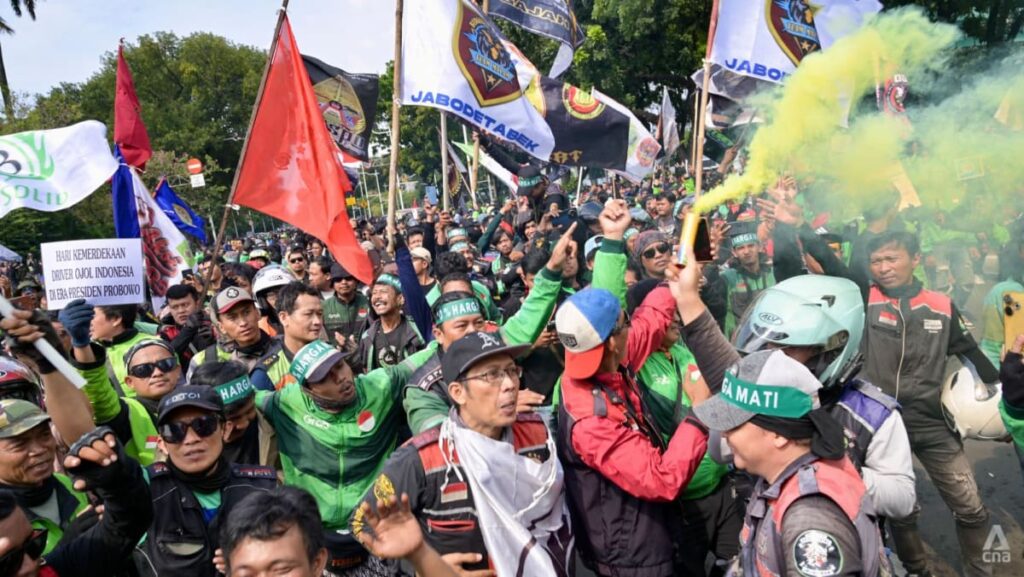Under current regulations, companies are supposed to take no more than 20 per cent of the fare, but Wicaksono said that sometimes the companies took more.
“There is no sanction in the regulation and the government has always been soft on the companies,” he said.
Transportation Minister Dudy Purwagandhi, who met company representatives on Monday to discuss the issues, acknowledged the drivers’ concerns over the level of commissions and said in a statement that the government was evaluating the scheme.
The companies say they take a commission on fares as regulated by the government.
Protests took place in cities, including Surabaya, Bandung, Yogyakarta, and Semarang on the country’s main Java island, local media reported.
Gojek rider Dewi Anggraini, 53, from Bekasi regency in West Java, said she was protesting because she felt the company “is not so concerned about our well-being anymore”.
Previous protests have been met with “empty promises”, said Dewi, who has worked in ride-hailing since 2015.
“Hopefully today it will be different so we will be more prosperous,” she told CNA.
Muhammad Abdul Cepi, who has been in the industry since 2017, said the commission taken by ride-hailing platforms has increased from 10 per cent to “over 20 per cent” currently.
“In 2017, we drivers were very prosperous,” said the 41-year-old from Tangerang in Banten province.
The drivers will continue to protest if their demands are not met, he added. “This is not the first or second time we’ve been protesting … we’ve done this often and there has never been a result.”
Abdul told CNA he continues to be a driver because finding a better job is difficult at his age.
Sunardi, 47, who joined the Jakarta protest, said company offers of discounted fares had also reduced driver incomes and called for an end to the practice.
The drivers said they feared a merger between GoTo and Grab would result in a “monopoly” and lead to layoffs as well as “predatory prices” for consumers, said Wicaksono.

